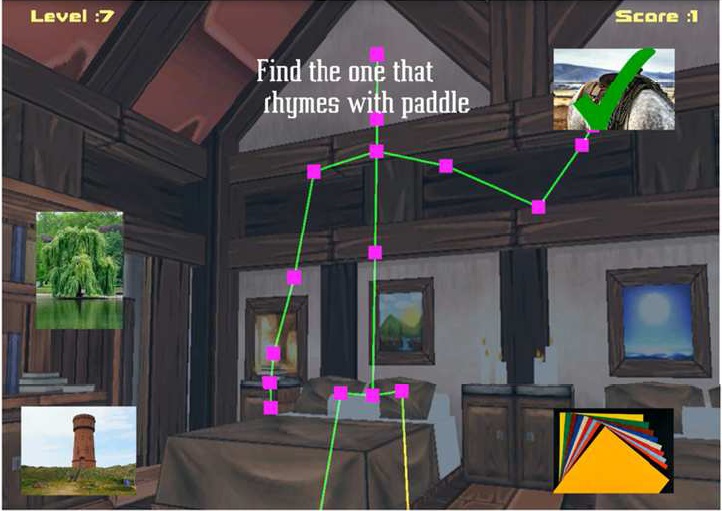Recent improvements in emergency hospital care have dramatically increased stroke survival rates. This has a knock-on effect: more people than ever need long-term rehabilitation to overcome language and physical impediments. Professor Rachel McCrindle and Dr Holly Robson’s innovative new therapy, MaLT (Motor and Language therapy), is designed in collaboration with patients, software experts and healthcare professionals and takes rehabilitation therapies to a new level.
Traditionally, therapies for brain-injury patients focus either on language or motor skills. But MaLT, delivered via Microsoft’s Kinect platform, combines upper-limb movements with language comprehension exercises, giving patients the chance to stimulate brain and body together.
More video game than therapy, Professor McCrindle and Dr Robson’s multidisciplinary team worked with motion-capture experts from Evolv Rehab, to create word puzzles that can be solved on a screen. MaLT has been play-tested by stroke patients at the Royal Berkshire Hospital and in patients’ homes, giving therapists the opportunity to monitor their progress and adapt the product where necessary.
It’s fun, different every time, and can be customised to people’s personal interests. Users can even record their own voices, allowing damaged brains to concentrate and learn more easily.
MaLT is currently being integrated into an approved rehabilitation platform that means patients can be monitored from anywhere in the world. And it’s well on the way to the commercial market; a perfect interplay of knowledge, expertise and business acumen.
Team: Rachel McCrindle, Holly Robson, Maitreyee Wairagkar, Lotte Meteyard, Jeanne-Louise Moyes
Partners: Royal Berkshire Hospital | Evolv Rehabilitation Technologies | Stroke Patient and Public Involvement Panel
Judges’ comment: “Working with stroke patients, clinicians and a tech company, the researchers are ensuring that new technologies are co-developed to best effect.”
Shortlisted for the University Research Engagement and Impact Awards 2018
First published: June 2018

